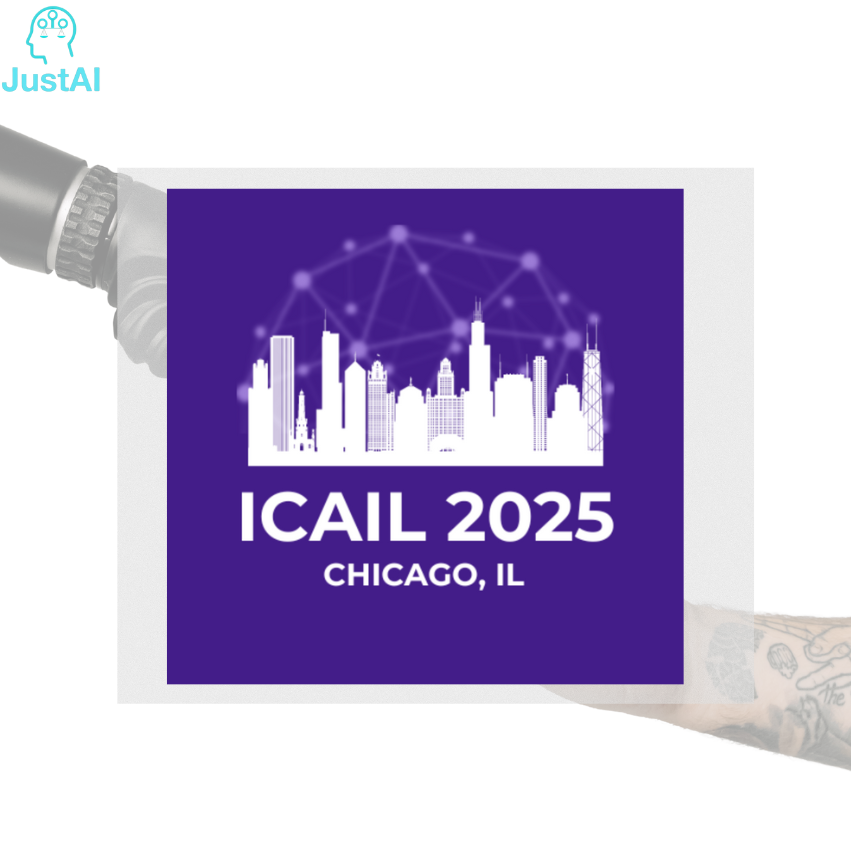20th International Conference on Artificial Intelligence and Law
Northwestern University, Chicago, Illinois | June 16-20, 2025
Hosted at Northwestern University’s Pritzker School of Law, the International Conference on Artificial Intelligence and Law (ICAIL) is a premier global event for the AI and Law community. Since its inception in 1987, ICAIL has brought together leading researchers, practitioners, and academics to explore the latest developments at the intersection of AI and Law.
Organized under the auspices of the International Association for Artificial Intelligence and Law (IAAIL), the conference proceedings will be published by ACM. We welcome paper submissions, technology demonstrations, and proposals for workshops and tutorials on a wide array of topics related to AI and Law.
Key Details:
- Program Chair: Juliano Maranhão
- Local Chair: Dan Linna
- Local Co-Chair: Kris Hammond
- IAAIL Secretary-Treasurer: Michał Araszkiewicz
Important Dates:
- Workshop and Tutorial Proposal Submissions: December 6, 2024
- Paper Submissions: January 17, 2025
- Demonstration Submissions (including extended abstracts): January 24, 2025
- Notification of Acceptance (Papers & Demonstrations): April 14, 2025
- Camera-Ready Papers Due: May 5, 2025
- Conference Dates: June 16-20, 2025
Themes and Topics of Interest:
We invite the submission of original research papers on a wide range of topics related to AI and Law. Topics of interest include, but are not limited to:
- Legal Text Processing & NLP: Argument mining, automatic summarization, classification, Named Entity Recognition (NER), semantic role labeling.
- Legal Reasoning & Decision Support: Computational models of legal reasoning, compliance checking with legal norms, formal models of norms.
- Dispute Resolution: Computer-assisted negotiation and dispute resolution, legal tutoring systems, decision support systems.
- AI Systems in Legal Practice: Applications of AI in law courts, lawmaking, and legislative activities, AI’s impact on legal education and public administration.
- Legal Knowledge Representation: Ontologies for law, knowledge acquisition techniques, legal rule representation, data mining in the legal domain.
- Machine Learning & Deep Learning: Techniques applied to legal texts and data, generative AI applications, empirical research on AI in legal practice.
- Blockchain & Smart Contracts: Applications of blockchain technology and smart contracts within the legal domain.
- AI Ethics & Legal Theory: Compliance with legal/ethical norms in AI design, implications of AI on legal theory and fundamental legal concepts.
- Applications of Responsible AI: Explainable AI in the legal domain, interdisciplinary AI applications, normative reasoning by autonomous agents.
- E-Government & E-Justice: E-discovery, e-democracy, and their applications in AI.
- Visualization Techniques: Methods to visualize legal data and information effectively.
We also encourage submissions on formal or computational models, interdisciplinary AI applications, natural language processing, and smart contract technologies as they apply to law.
Submission Guidelines:
- Paper Length: Long papers (up to 10 pages, including references) and short papers (up to 5 pages, including references).
- Anonymity: Double-blind reviewing. Author names, affiliations, and acknowledgments must be omitted from submissions.
- Paper Formatting: Use the ACM sigconf template (for LaTeX) or interim template layout.docx (for Word). Papers must be submitted in PDF format.
- Paper Requirements: Submissions should include a clear relation to legal information, processes, or reasoning and must present novel scientific contributions with a full discussion of results and findings. Encouraged: sharing of data and code for reproducibility.
- Submission Platform: Details for electronic submission will be announced soon.
Demonstrations:
A dedicated session will showcase practical applications and tools. Authors interested in demonstrating their work should submit a two-page extended abstract, unless tied to a paper submission. Extended abstracts will be published in the proceedings.
Workshops and Tutorials:
Proposals for workshops and tutorials are welcome, focusing on topics of significant relevance to the AI and Law community. These sessions are aimed at fostering interactive discussions and knowledge sharing. Proposals should be between 2-4 pages and include goals, format, and intended audience.
Doctoral Consortium:
The ICAIL 2025 Doctoral Consortium will offer PhD students an opportunity to present their research and receive feedback from leading scholars. Details about the consortium will be shared separately.
Awards:
At the ICAIL 2025 conference, three prestigious awards will be presented:
- Donald H. Berman Award for Best Student Paper
- Carole Hafner Award for Best Paper
- Peter Jackson Award for Best Innovative Application Paper
Join the ICAIL 2025 Community!
ICAIL 2025 promises to be an insightful event, advancing research at the nexus of AI and Law. We look forward to your contributions and participation in this esteemed conference!
For further details and updates, click here

